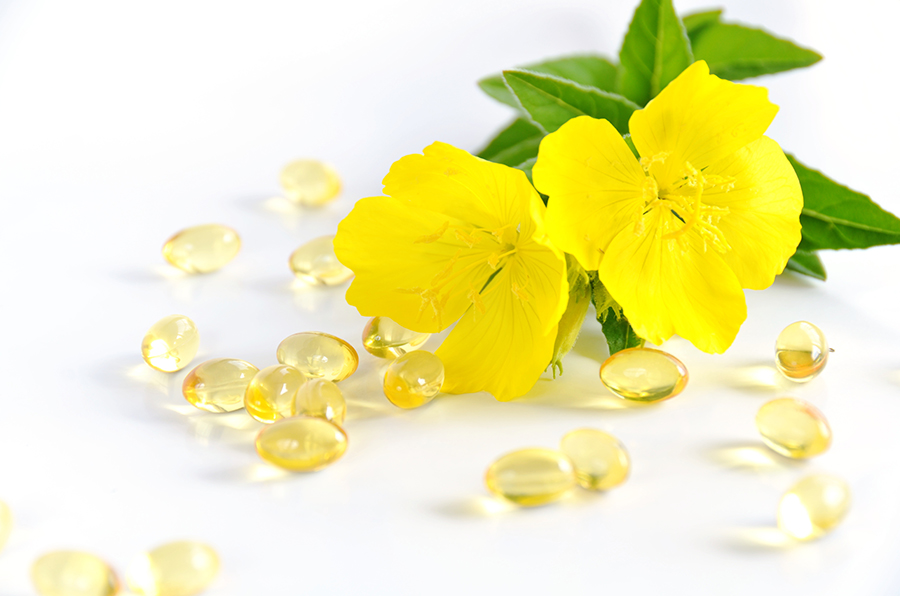
The evening primrose, a native of North America, began to find its way around the world during the seventeenth century. The seeds hitched a ride in the ballasts of ships travelling from North America to Europe, where they took root. From Europe, the evening primrose spread to Asia. Traditionally, the plant and its root were used to treat bruises, piles, cough and stomach aches, but it is in fact the seeds that contain the therapeutic oils.
What’s it good for?
- Arthritis pain
- eczema
- premenstrual syndrome (PMS)
Evening primrose oil comes from the seeds of this biennial plant. There are reddish in colour and produced during the plant’s second year (it bears only leaves during its first year). The light yellow, sweetly scented flowers don’t open until dusk, hence the plant’s name.
The seeds oil contains a special fatty acid known as gammalinolenic acid (GLA). This substance is the active ingredient in evening primrose oil, making up 7 to 10 per cent of its fatty acids. GLA is converted in the body to a variety of hormone-like compounds – prostaglandins and leukotrienes – that fight inflammation.
GLA can be made in the body from other types of fat such as linoleic acid, which is found in vegetable oils and poly-unsaturated margarines and spreads. However, some people do not have enough of the enzyme to be able to do this. Evening primrose oil can be used to compensate for the missing enzyme and encourage the body to make these anti-inflammatory activity makes evening primrose oil useful for several conditions.
- Soothe eczema irritation Eczema and itchy skin can develop if the body has trouble converting the fats in foods into GLA. Taking evening primrose oil for three to four months has been found to alleviate itching and reduce the need for topical steroid creams and drugs.
- Ease menstrual problems Evening primrose oil may be effective for menstrual disorders such as pre-menstrual syndrome (PMS), the breast tenderness that some women experience before their periods, and menstrual cramps.
- Reduce rheumatic pain Some people find that taking evening primrose oil reduces systems of rheumatoid arthritis pain. Try taking it in combination with omega-3 fatty acids, found in fish oil or flaxseed oil.
- Other inflammatory conditions Condition’s that involve inflammation such as rosacea, acne and sprains may also benefit from evening primrose oil.
Hyperactive children and fatty acids
There is lot of interest in the role of essential fatty acids, including GLA and omega-3 fatty acids, in children with attention deficit hyperactivity disorder (ADHD). It is thought that some of these children may be deficient in these fatty acids. Supplements containing GLA and omega-3fatty acids are available and are worth a try. Buy one which is made especially for children and follow the dosage instructions on the package label.
When not to take it
Evening primrose oil is safe for most people. It can sometimes cause mild effects, including headache and mild stomach upsets or bloating. There has been some concern that evening primrose oil might increase the change of problems during pregnancy, so do not use it if you are pregnant or breast feeding. Evening primrose oil may slow down blood clotting, so avoid taking it with other medicines that also delay blood clotting, because it might increase the change of brushing and bleeding. It can also increase the risk seizures, so do not use it if you have epilepsy or are taking any medication that increases the risk of seizures (such as the phenothiazine group of anti-psychotic drugs).
